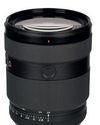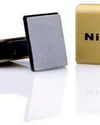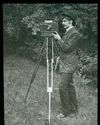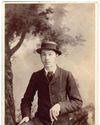Andy Westlake examines the fourth generation of Fujifilm’s classic fixed-lens rangfinder-style compact

Fujifilm’s star is now so high in the camera makers’ firmament that it’s easy to forget just how recently the firm was primarily a purveyor of identikit zoom compacts. The camera that set it on course towards higher things was the original X100, with its retro range finder-style design, fixed lens, APS-C sensor and clever hybrid optical/electronic view finder. Now, with the X100F, Fujifilm has unveiled the fourth generation of this modern classic.
As with the previous updates, the F (for ‘fourth’) remains very close in spirit to the original design, with the same 35mm equivalent f/2 lens and analogue dial-led operation. But it’s the most radical overhaul yet, acquiring most of the same updates as we saw on its interchangeable-lens big brother, the X-Pro2, last year. Inside it gains a 24.2-million pixel X-Trans III CMOS sensor and X-Processor Pro, which together promise substantially improved image quality and auto focus. Fujifilm has also made some significant updates to the control layout, which should make the X100F an even better photographic tool.
Six years after the original X100 went on sale, there’s still nothing else on the market that can match the series’ winning combination of image quality and retro charm. So the question for this review isn’t really whether the X100F is going to be a stunning camera, as we already know that. Instead it’s more about whether the updates justify its £1,249 price tag.
Features
Denne historien er fra March 25,2017-utgaven av Amateur Photographer.
Start din 7-dagers gratis prøveperiode på Magzter GOLD for å få tilgang til tusenvis av utvalgte premiumhistorier og 9000+ magasiner og aviser.
Allerede abonnent ? Logg på
Denne historien er fra March 25,2017-utgaven av Amateur Photographer.
Start din 7-dagers gratis prøveperiode på Magzter GOLD for å få tilgang til tusenvis av utvalgte premiumhistorier og 9000+ magasiner og aviser.
Allerede abonnent? Logg på

Calling The Shots: A Queer History of Photography
Offering an unprecedented view of photographic history through a queer lens, this is a wonderful and powerful book, says

Large-aperture standard zoom, too
SONY has also revealed a new premium standard zoom, the FE 28-70mm F2 GM.

Super-fast, high-res Sony Alpha Ai II
SONY has announced its new professional full-frame flagship camera, the Alpha A1 II.

39 awesome accessories
Our round-up of the best accessories we've used and reviewed this year, along with some old favourites. There's something here for every budget, starting from just £7, including tripods, bags, filters and much more

Such a thing as society
This autumn sees the launch of a major new book and exhibition devoted to examining the multiplicities of photography during 1980s Britain. Peter Dench finds out more

Join Club
The sociable Canvey Island Photographic Club is keen to grow its in-person meet ups

Capturing flight
Winners and finalists of Bird Photographer of the Year share their tips for success with Hollie Latham Hucker

140 years of change
AP has become the world’s oldest surviving consumer photo magazine because we have moved with the times, says Nigel Atherton

Preserving history in platinum
A deep dive into the meticulous art of platinum printing, and the collaboration between the Royal Geographical Society and Salto Ulbeek. Mike Crawford explores how they brought historical photographs to life with enduring beauty and precision

Life in the past lane
What was life like for an amateur photographer in 1884? John Wade takes a trip back in time